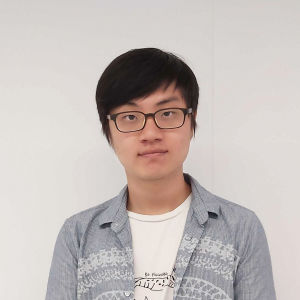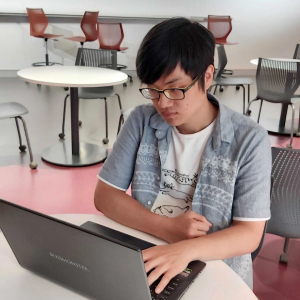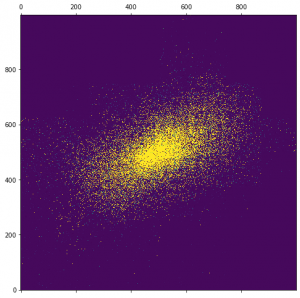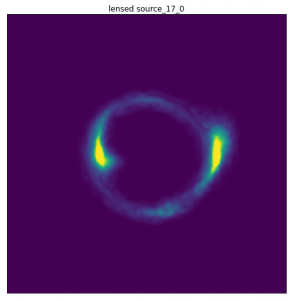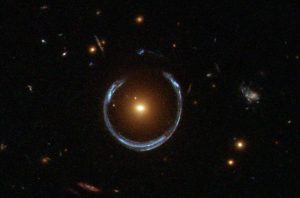Jinoo is originally from Seoul, Korea, and moved to British Columbia 10 years ago. About five years ago, he arrived at the University of Toronto. This summer, he completed an undergrad specialist degree at the David A. Dunlap Department of Astronomy and Astrophysics in Astronomy and Physics, and will be graduating.
What made you decide to participate in SURP?
As an undergraduate student it is very hard to find a chance to actively participate a research project that is closely related to a person’s studies. As the name suggests (Summer Undergraduate Research Project) SURP provides rare opportunities for undergraduate students. There was no reason to disregard such chance and do something else during the summer.
What is your favourite thing about SURP?
The best part of SURP is that it gives you feeling of accomplishment and relief. Before SURP I had a lot of doubt whether I would be able to properly apply skills I have learned in classes to real world problems. By actively participating in real-world-problem-solving not as a student in a lecture for grades, but as a part of research group helps me to gain self-confidence.
Can you tell us about your research project?
When a galaxy emits light from far away other massive celestial objects near an observer bend the light to act as a lens. This lensing effect helps to observe very distant galaxies that are otherwise too faint to observe. But the lensing often distorts images too much, making very hard to get morphological information. My research uses machine learning techniques to build a neural network that automatically calculates morphological measurements directly from lensed images.
Can you explain how SURP has perhaps been different from your undergrad work?
The work schedule is similar as assignment-based courses, which have no lectures and students can do their work whenever they decide to do. The main difference is how closely and often I contact my supervisor. Since what I am doing now is for active research project rather than for learning existing knowledge in a textbook, I have to ask, discuss, and communicate with my supervisor a lot more than with professors during my school years.
What are your plans for the future?
I am graduating this year so there is no more undergrad work for me. Eventually I will apply and get into a graduate school since I would love to continue studying astrophysics. But before that, I plan to look for job opportunities within the field of physics (and ideally astronomy as well, but not as strictly) for next couple years. Hopefully, by doing so I can give my brain a little break before entering a different page of academia.
For more SURP Student Spotlight profiles visit:
dunlap.utoronto.ca/training/surp/studentspotlight2021.

